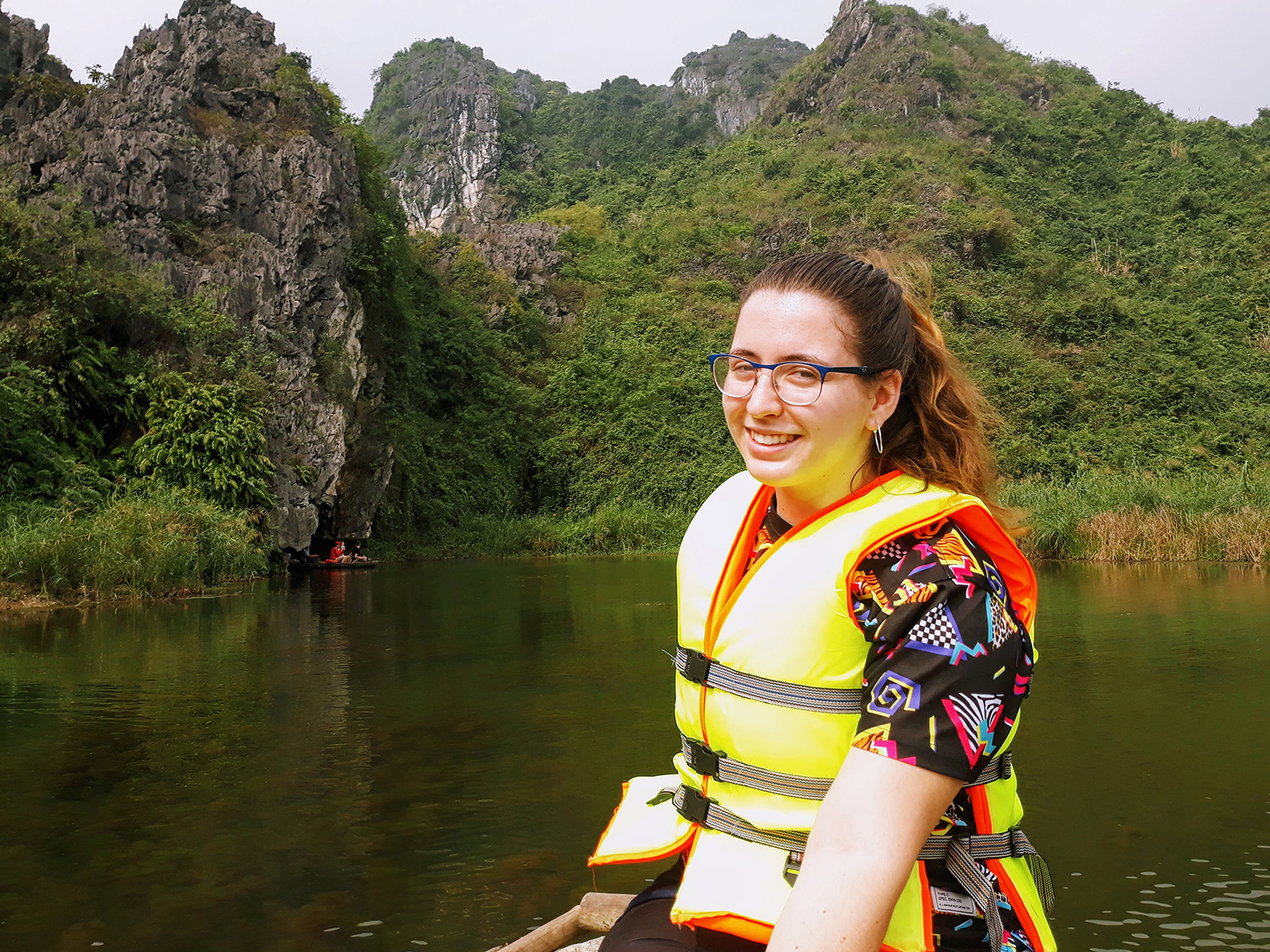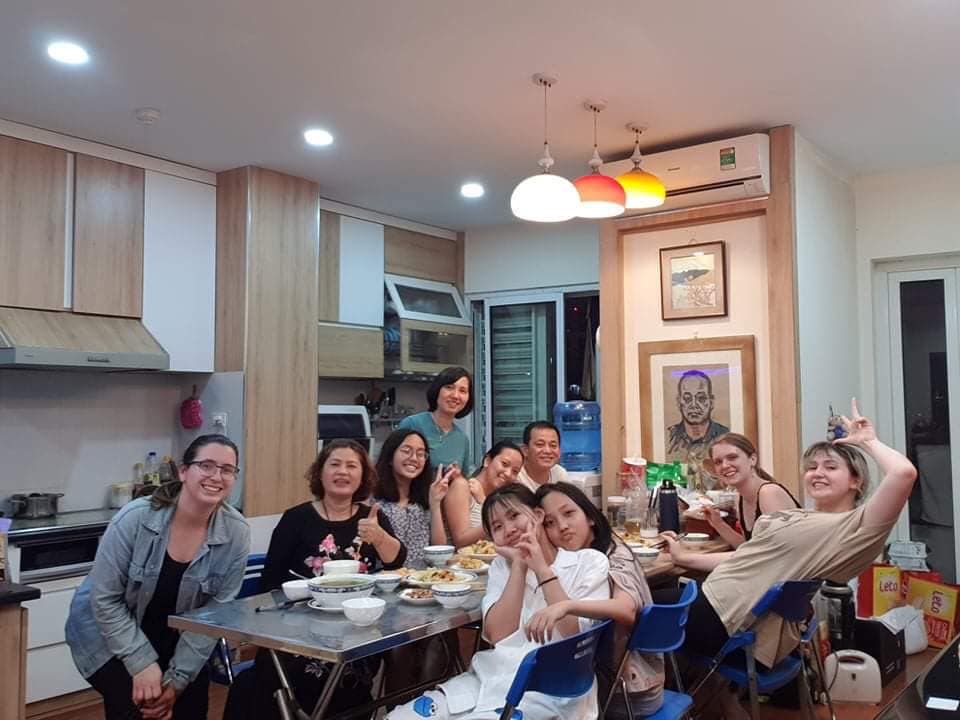The Send-Off: Masks Included
By: Adriana Discher, CAS ’21

Adriana Discher is one of the Semester Abroad Global Correspondents writing and sharing her experience abroad during the Spring 2020 semester. Follow along with the group of correspondents on our blog and look out for their images on the @pennabroad Instagram feed.
Semester Abroad
International Honors Program (IHP): Health and Community
It goes without saying but the entire structure of my blogging experience has been altered by coronavirus. In sitting down to write about my first month of study abroad, I made every effort to write something that would allow me to completely ignore coronavirus and accurately convey my experience. However, within the first three days of my program’s two-week launch in D.C., the whispers about the epidemic (yet to be declared a pandemic) were omnipresent. “Do you think our program will be moved?” I heard someone ask our program director after news broke about the spread to Italy. “Are we still going to be able to do site visits to hospitals and clinics?” another girl asked me as we took the metro to a guest lecture on food insecurity at a local soup kitchen.
Many students on my program were worried about Hanoi’s proximity to the Chinese border and understandably so: while the country was celebrating Tet, a week-long New Year’s holiday, the Vietnamese government was busy worrying about the same risk of potential spread. The Tet holiday meant that schools were already closed, businesses were operating on fewer hours, and people were busy celebrating with their extended families. Although I didn’t have the opportunity to experience the festivities, my host family told me all about the people they visited and the special foods that are only eaten during this time of the year. All around me was evidence of a grand celebration: lanterns dotting streets, little red envelopes buried deep into my host sister’s bag, and cartoonish rat decals lining storefronts. At one point, I found myself wishing that I had come to the city even just a week earlier to witness the holiday’s energy (and maybe receive a money-filled red envelope for myself).
“Is our entire curriculum going to consumed by this the virus?” I was thinking as we received a pack of masks, delivered via expedited shipping from Vermont, the day before our flight to Vietnam. Most of my two-week stay in D.C. wasn’t overpowered by the virus that was, at that time, localized over eight thousand miles away. I loved it. I felt completely embedded in a community that prioritized social justice when learning about what it means to truly experience health. The time in between my official classes was dotted with neighborhood visits focused on the health effects of gentrification, guest lecturers with policy-making experience, and opportunities to talk to people at clinics. I didn’t want to leave an academic environment that felt perfectly conducive to learning in order to go to one that was solely focused on a virus that, at the time, I simply wasn’t that interested in.
I arrived in Hanoi, the capital city of Vietnam, on the ninetieth anniversary of the Communist Party in the country. Flags with hammers and sickles lined the streets and served as a reminder that I was in no ordinary place. Sleep-deprived (because who likes sleeping with a mask over their mouth and nose?), I didn’t feel even remotely ready to fight against jetlag by exploring the city. Trying my first of many bowls of phở and indulging in mind-blowingly delicious egg coffee perked me up and I felt ready to start my month of full immersion. This confidence was quickly placed in jeopardy when I ordered dinner on Grab, the Uber of Vietnam, and struggled to communicate with my driver because I had conveniently forgotten that I didn’t speak a lick of Vietnamese. Diving into my bún chả that I hadn’t managed to haggle for, the foodie in me immediately felt reassured that I was in the right place.
Although Hanoi made me feel at home with its food, hospitality, and atmosphere, I felt a strong need to remember that, first and foremost, I was a white foreigner. As a foreigner, it could be perceived as rude not to wear a mask and I realized the importance of valuing the space you’re in over your own individual desires. I became starkly aware of the necessity of mask culture when, on traditional medicine street with my program some days later, a group of us were asked to leave the area because shopkeepers were afraid of coronavirus. Looking back on it, I realize that although the streets were not deserted, most of the shops had no customers to begin with. Coronavirus had completely changed the landscape of this city and, as a tourist, I represented a potential risk factor. I realized that I had to acclimate to the feeling of fogging up my glasses with every exhale and to never ride on a motorbike or in a rideshare without my mask to avoid making my drivers feel unsafe. Vietnam had been rattled by SARS less than twenty years ago and knew what it meant to face a virus of epic proportions- who was I to judge their response? Every day, when walking out of the homestay, I was faced with the physical reminder of my foreign status in addition to the reminder that this virus was not something to take lightly.
The university that hosted my classes didn’t have students on campus the entire time that I was there. Hand sanitizer that felt like the equivalent of pure ethanol was a classroom and shop staple, to the level of chalk or a cash register. My two host sisters have yet to go back to school since their holiday break at the end of January. While there, I didn’t get to visit a Vietnam that wasn’t facing a state of emergency, but in a way, I’m grateful. As America transitions into a similar state, I’m realizing that you really get to see the honest truths of a country when you look at it while it faces something unexpected.
Until I return again, I’m going to try my absolute best to recreate egg coffee and phở. Thank you for everything, Vietnam.

The Semester Abroad (SA) program offers undergraduate students the opportunity to study in a new global community through extended study for a semester or year. Penn Abroad partners with top institutions around the globe and collaborates with Penn’s undergraduate schools to offer programs for students across academic disciplines.